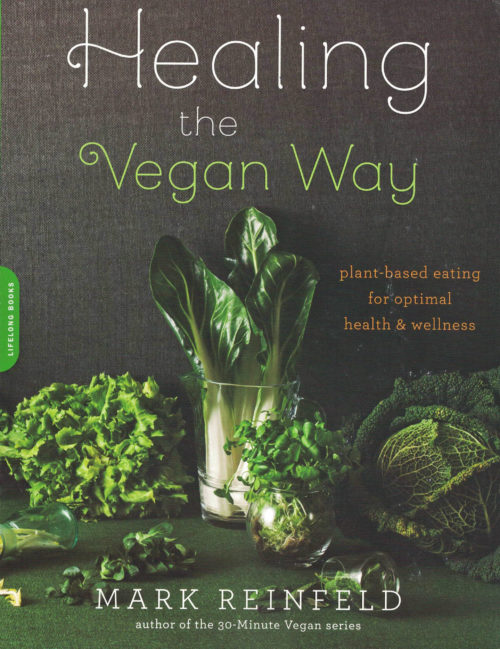Rooted In Health: The Vegan Way To Wellness

Executive Summary

The vegan lifestyle, characterized by abstaining from consuming animal products, has gained significant traction as a means to achieve optimal health and well-being. Rooted in the principles of compassion, sustainability, and nutritional excellence, veganism offers a myriad of benefits, ranging from reduced risk of chronic diseases to improved overall vitality. This comprehensive guide delves into the multifaceted aspects of veganism, exploring its nutritional foundations, health implications, and practical implementation.

Introduction
The adoption of a vegan diet has emerged as a powerful tool for individuals seeking to transform their health and live a more ethical life. By eliminating animal products from their culinary repertoire, vegans embrace a plant-based approach that harnesses the transformative power of fruits, vegetables, legumes, and whole grains. This dietary shift not only aligns with the principles of compassion and environmental stewardship but also unlocks a treasure trove of health benefits.
FAQs
FAQ 1: What are the primary reasons for adopting a vegan lifestyle?
- Ethical concerns for animal welfare and the reduction of suffering
- Environmental sustainability, as animal agriculture contributes significantly to greenhouse gas emissions and deforestation
- Health benefits, such as reduced risk of heart disease, certain types of cancer, and type 2 diabetes
FAQ 2: Can a vegan diet provide all the essential nutrients for optimal health?
- Yes, a well-planned vegan diet can meet all the nutritional requirements for all stages of life, including protein, iron, calcium, and vitamin B12.
- It’s crucial to consume a variety of plant-based foods and consider supplementation if necessary.
FAQ 3: How can individuals transition to a vegan diet effectively?
- Start gradually by incorporating more plant-based meals into your weekly routine.
- Focus on exploring new recipes and experimenting with different cuisines.
- Seek support from online communities, cookbooks, and registered dietitians specializing in plant-based nutrition.
Top 5 Subtopics
1. Nutritional Foundations of a Vegan Diet
- Plant-Based Protein Sources: Legumes, tofu, tempeh, nuts, and seeds provide ample protein to support muscle growth and repair.
- Iron Absorption Enhancers: Consuming vitamin C-rich foods, such as citrus fruits and leafy greens, enhances iron absorption from plant sources.
- Calcium-Fortified Foods: Plant-based milks, yogurts, and leafy greens are fortified with calcium to ensure adequate intake.
- Vitamin B12 Supplementation: This essential nutrient is not naturally found in plant foods, necessitating supplementation or fortified foods.
- Omega-3 Fatty Acids: Certain algae and plant oils, such as flaxseed and chia seeds, provide essential omega-3 fatty acids.
2. Health Benefits of Veganism
- Reduced Risk of Heart Disease: Plant-based diets are rich in fiber, antioxidants, and heart-healthy fats, lowering cholesterol levels and improving blood pressure.
- Lower Risk of Certain Types of Cancer: Studies suggest that vegans have a reduced risk of developing certain types of cancer, including colon, breast, and prostate cancer.
- Improved Blood Sugar Control: Plant-based diets are typically lower in refined carbohydrates and higher in fiber, aiding in blood sugar management and reducing the risk of type 2 diabetes.
- Weight Management: Vegan diets tend to be more nutrient-dense and lower in calories, promoting satiety and supporting healthy weight management.
- Reduced Inflammation: Plant-based foods are rich in antioxidants and anti-inflammatory compounds, potentially reducing chronic inflammation and improving overall health.
3. Environmental Sustainability
- Reduced Greenhouse Gas Emissions: Animal agriculture contributes significantly to greenhouse gas emissions. Veganism reduces these emissions by eliminating the consumption of animal products.
- Conservation of Natural Resources: Animal agriculture requires vast amounts of land, water, and energy, while plant-based diets conserve these resources.
- Deforestation Prevention: Animal grazing and feed production contribute to deforestation. Veganism safeguards forests and biodiversity.
- Water Conservation: Animal agriculture requires substantial amounts of water, while plant-based diets are more water-efficient.
- Reduction of Waste: Veganism reduces waste by eliminating animal byproducts and waste associated with animal agriculture.
4. Ethical Considerations
- Animal Welfare: Veganism respects animals’ right to live free from suffering and exploitation in factory farms.
- Compassion: It promotes a compassionate lifestyle that extends empathy to all living beings.
- Environmental Stewardship: Veganism recognizes the interconnectedness of animals, the environment, and human health.
- Social Justice: Animal agriculture often involves unethical labor practices and contributes to food insecurity in some regions.
- Health and Safety: Reducing animal consumption can minimize the risk of zoonotic diseases and antibiotic resistance associated with animal agriculture.
5. Practical Implementation
- Meal Planning: Plan meals that incorporate a variety of plant-based foods from all food groups.
- Recipe Exploration: Experiment with new recipes and cuisines to expand your culinary horizons.
- Label Reading: Pay attention to food labels to identify vegan-friendly products and avoid hidden animal ingredients.
- Dining Out: Research vegan-friendly restaurants or request vegan options when dining out.
- Support System: Join vegan communities, connect with like-minded individuals, and seek guidance from healthcare professionals specializing in plant-based nutrition.
Conclusion
The vegan lifestyle offers a powerful pathway to achieving optimal health, environmental sustainability, and ethical living. Rooted in the principles of compassion, it promotes a plant-based approach that nourishes the body, protects the planet, and fosters a more harmonious relationship with all beings. By embracing veganism, individuals can embark on a transformative journey that enriches their lives in countless ways.
Relevant Keyword Tags
- Vegan Diet
- Plant-Based Nutrition
- Health Benefits of Veganism
- Ethical Veganism
- Environmental Sustainability